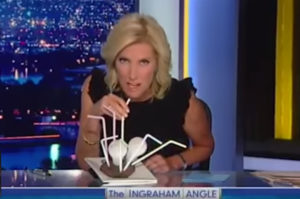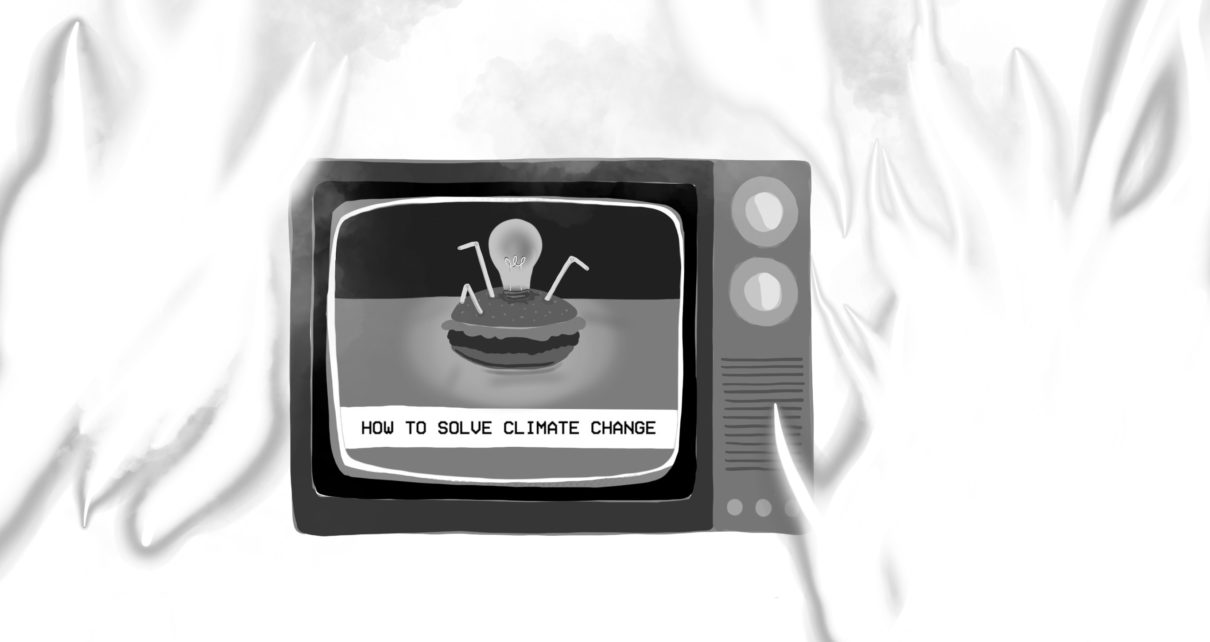Due to a few industries pumping millions of tons of carbon into the atmosphere, climate change is a crisis we are just seeing the beginning of. Yet for the past thirty years, also due to these industries pumping misinformation into the political atmosphere, climate change has been a paltry sidestep for presidential candidates as they navigate to the White House.
In the 2020 Democratic primary, however, voters have made it increasingly clear that climate change’s consequences and solutions are a major concern. Despite the well-deserved coverage of climate change in cable news media, anchors have struggled to accurately balance scientific fact and policy inquiry. Consequently, coverage emphasizes the difficulty of enacting solutions without fully appreciating how serious the problem of climate change really is.
A Big Improvement
In the 2016 election, climate change was absent from the conversation. During the 20 presidential primary debates in 2015 and 2016, only 1.5% of the questions addressed the climate crisis, according to a study by Media Matters. The absence continued in the three general election debates between Donald Trump and Hillary Clinton when moderators did not ask a single climate-based question. In those debates, a total of only five minutes and twenty-seven seconds were spent on the climate and other environmental issues, involving Hillary Clinton affirming climate change’s existence while lamenting Donald Trump for his previous claims about global warming being a Chinese hoax.”
This is a contrast to 2019, in which climate change is recognized as a top election issue. A Monmouth University poll from April stated that climate change is the second most important issue to Democratic Iowa caucus-goers after health care. More recently, the League of Conservation Voters and CAP Action Fund conducted a poll in June that surveyed both Democratic primary voters and general election voters across 2020 battleground states. In it, voters revealed that a majority believe climate change is a “crisis” or a “very serious problem.”
In the past couple of months, the climate crisis has received an unprecedented amount of cable news and media coverage. Furthermore, climate-based questions have been asked in all three Democratic primary debates. Old habits of disregard, however, appear to die hard.
According to Media Matters, at NBC News’s first Democratic debate in June, less than 6% of the questions asked were based on the climate crisis. Only ten of the twenty candidates were asked about the issue, and it was ignored until the second half of the debate. CNN’s second Democratic debate in July peaked at asking 9.5% of questions about climate change. At ABC News’s most recent debate in mid-September, only about 7% of questions were climate-related.
CNN and MSNBC also deserve recognition for hosting climate town halls in September. On September 4th, the ten leading Democratic candidates, including frontrunners former Vice President Joe Biden, Sen. Bernie Sanders and Sen. Elizabeth Warren, discussed climate policy and fielded questions from an audience for 40 minutes each, totaling around seven hours of climate coverage. Last week, MSNBC invited frontrunners along with second-tier candidates to a two-day forum, but five democratic candidates, Biden, Warren, Sen. Kamala Harris, Sen. Amy Klobuchar, and former Rep. Beto O’Rourke, chose not to participate.
I Warren You Not to Do That
While it is clear that voters and candidates wanted substantive discussions about climate change policy, anchors at the debates and town hall often missed the mark by opting for questions designed to trap candidates into a clickbait headline of them attacking a beloved American commodity (let’s say cheeseburgers?).
Nowhere was this better exemplified than by Chris Cuomo at CNN’s climate forum when he asked Warren about President Trump’s recent rollback of a regulation established under George W. Bush and finalized under Barack Obama to phase out less efficient light bulbs. “Do you think that the government should be in the business of telling you what kind of light bulb you can have?” asked Cuomo.
Nowhere, however, was there a more important, blunt seven words that eviscerated Cuomo’s framing of the crisis than when Warren responded with “Oh come on, give me a break.”
Warren understood the subtext of Cuomo’s questions—echoed not just by the CNN anchors throughout the night but also reverberated by Fox News and Republicans. The question was not really about Trump’s rollbacks or lightbulbs. It was about the argument that climate change solely requires personal sacrifice, and that sacrifice will inevitably result in loss of individual autonomy to governmental elites.
Warren explained that the personal sacrifice frame frees the culprits—large corporations with government connections—from accountability and aids their elusiveness by dividing public opinion.
“They want to stir up a lot of controversy around your lightbulbs, around your straws, and around your cheeseburgers, when 70 percent of the carbon that we’re throwing into the air comes from three industries,” continued Warren.
Her quip demonstrated that addressing the climate crisis becomes very simple when the media shifts focus from impacts (on lightbulbs) to causes of the crisis. For example, the IPCC report released in October 2018 outlined that 70% of global greenhouse gas emissions come from only 100 companies including ExxonMobil, Shell, BP and Chevron. Instead of legislating on lightbulbs, straws and cheeseburgers, Warren shifted attention to the three biggest actors: the building industry, electric power industry, and oil and gas industry.
Consequently, anchors like Cuomo need to stop equating environmentalism to personal consumerism. An emphasis solely on personal consumerism creates guilt for those who believe in the crisis while stimulating anger for those who (falsely) think the crisis is manufactured to give the government more power. It promotes a narrative that the crisis can be fixed by switching light bulbs, refusing plastic straws and eating less cheeseburgers—and if it cannot, is it even worth it?
The IPCC report states that the world will have to curb its carbon emissions by at least 49% of 2017 levels by 2030 and then achieve carbon neutrality by 2050 to limit global warming to 1.5C above pre-industrial levels. Many 2020 candidates have proposed plans that reflect a Green New Deal that includes phasing out coal-fired power generation, restructuring American transit and addressing food production. These are all factors that call into question how we can have an equitable transition for those who base their livelihoods in damaging industries. This transition deserves to be discussed—and debated—at length.
Questions framed around lightbulbs, straws and cheeseburgers speak to daily life and are relatable. They are synonymous with average Americans—if we lose those inanimate objects, will we also lose the average American? But lightbulbs, straws and cheeseburgers are also distractions. They divert blame from carbon culprits who threaten not only the materialization of the climate policy, but actively work to make environmental conditions worse, and an equitable transition less likely.
What will happen to the Plastic (White) Straws (Men)?

The stir over lightbulbs, straws and cheeseburgers can in large part be traced back to Fox News’s misinformation campaign to convince viewers that the consequences of a transition to a carbon-neutral economy will be more damaging than the consequences of climate change itself.
Ironically, they achieved their deception by covering the climate crisis more than any other news station. On September 5th and 6th, Fox News aired 46 segments on the CNN Climate forum, more than triple the number aired by CNN and MSNBC combined. Of Fox’s segments, Media Matters found that 48% either downplayed or outright denied climate change, 61% framed the discussion of climate solutions as a type of Democratic extremism and 57% mentioned meat or straws. Of those 46 segments, 60% ran on prime time shows.
Fox’s Tucker Carlson Tonight, which is the most-watched news show on cable, ran the most segments, at nine. On September 5, Carlson brought on the Heartland Institute’s Justin Haskins, who stated, “This is not about climate change, it’s not about environmentalism, it’s never been about that. It’s about force, control, and manipulation.” Simultaneously, Carlson’s show has repeatedly amplified white nationalist views, painting issues that incorporate levels of privilege and multiculturism– like climate change, as threatening to his viewers (who have an average age of 66 and are 94% white). When he and other Fox News hosts cry about the loss of the plastic straw, it is a pretense for cries about the loss of the white man’s total dominance of society.
Fox News controls the narrative by appealing to a sense of the American identity exemplified by their average viewer—a white man who does not want the government involved in personal decisions regardless of desires to save the planet. By not mentioning climate change in news segments, or by parroting Fox’s government overload talking points when they do mention it, other media outlets artificially make climate change more divisive than it truly is. This ultimately pollutes the narrative, causing climate solutions to be seen as aspirational rather than crucial.
The Next Step
There are a lot of things that need to go right for climate policy to effectively address the crisis. A candidate needs to not only ensure the labor sector’s future economic growth, but additionally recognize aspects of environmental justice among historically marginalized communities. A candidate will need to forgo Fox News’ fear mongering, create a public alliance and rally civil protest. Depending on the political parties in government, climate policy will call into question the use of a president’s executive power. Most importantly, the candidate needs to prove climate change will be an electoral success at the local, state, and federal level.
American citizens deserve—and the world needs—the best candidate for that journey. The best way to ensure that the United States gets the candidate who is most equipped for the fight is a Democratic primary debate on climate change.


One Reply to “Lightbulbs, straws and cheeseburgers: “Oh My””